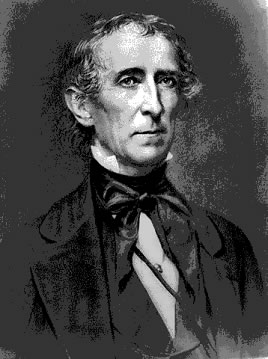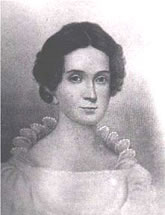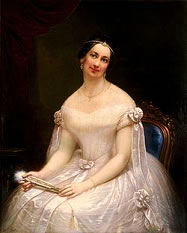John Tyler (1790-1862), tenth president of the United States, was the first vice president to succeed to the presidency. His administration was marked by great conflict over the Texas question. John Tyler was born on March 29, 1790, at Greenway Plantation in Charles City County, Va. His father, John Tyler, was governor of Virginia and a judge of the U.S. District Court. Young Tyler attended several preparatory schools and graduated from the College of William and Mary in 1807. He then studied law and was licensed to practice at the age of 19. At 21 Tyler was elected to the Virginia House of Delegates; he served from 1811 to 1815. He subsequently was elected to the Virginia Council of State, to the U.S. House of Representatives, to the governorship of Virginia, and to the U.S. Senate (1827-1834). During these years Tyler emerged as one of the chief proponents of the states'-rights doctrine. He opposed internal improvements at Federal expense, a tariff to protect native industries, and a national banking system. Like most politics of his day, Tyler's political activities were molded by the confused party situation existing during the 1820s and 1830s, as the long-dominant Jeffersonian Republican party dissolved. In the election of 1828 Tyler supported Andrew Jackson but found himself in opposition to Jackson soon after the inauguration. Tyler was against the President's threat to use force against South Carolina in order to enforce the tariff nullified in 1832. Tyler also attacked Jackson for what he considered to be his high-handed way of withdrawing governmental deposits from the Bank of the United States. Oddly, by alienating himself from the administration, Tyler found himself aligned with Henry Clay, Daniel Webster, and the other Northern nationalists who had created the Whig party. In 1839 the Whigs, whose presidential candidate was William Henry Harrison of Ohio, sought to balance the ticket with Tyler as their vice-presidential candidate. Because his views bore little relationship to those of the rest of his party, Tyler skillfully sidestepped the major issues during the campaign. Despite his presence on the ticket, the Whigs lost Virginia; however, they won nationally. Harrison's death a month after his inauguration created a minor constitutional crisis and a major political one. Tyler was the first vice president to succeed to the presidency, and the question was raised as to whether he was actually president or just the vice president acting as president. Tyler established the precedent that the vice president succeeded to the powers and honors of the office as if he had been elected in his own right. Although Tyler inherited governmental powers, he lost control of his party. As a misplaced Democrat within the Whig party, he had great difficulty with the congressional leaders of his party, especially Henry Clay. The split was most evident on three issues: the Bank of the United States, the tariff, and a proposal to distribute among the states the revenue secured from the sale of public lands. Tyler twice vetoed the charter passed by Congress for the creation of a Third Bank of the United States. He made several positive suggestions, however, for a substitute - including creation of a Bank of the District of Columbia with less power than that of the Second Bank of the United States. Tyler also vetoed a tariff and distribution bill that he contended violated the principles of the compromise tariff of 1833 (which had ended South Carolina's nullification threat). Tyler's increasing isolation from the Whig party was hastened by the resignation on Sept. 11, 1841, of all the members of the Cabinet appointed by Harrison, except Secretary of State Daniel Webster. Webster remained until May 1843 in order to complete negotiations with England over a long-standing boundary dispute. Tyler's final Cabinet was composed mainly of Southerners, including John C. Calhoun as secretary of state. The latter part of Tyler's tenure was dominated by the Texas question. After Texas won its independence from Mexico, the Jackson and Martin Van Buren administrations refrained from annexation because of the position of the North, which opposed incorporating more slave territory into the United States. Rejecting this opposition, Calhoun negotiated a treaty of annexation. This was turned down by the Senate in 1844. The question played a part in the election of 1844, after which the administration pushed a joint resolution through Congress providing for the incorporation of Texas. It was passed on the last day of Tyler's administration. As Tyler had had little hope of renomination by the Whigs in 1844, he had sought to build a third party composed of dissident Democrats and Whigs but soon abandoned his efforts. Tyler remained active in national politics. He supported the Compromise of 1850 and the Kansas-Nebraska Act. After South Carolina seceded in 1860, Tyler participated in the Washington Peace Convention that met early in 1861. When Virginia seceded, he supported his state. He was elected to the Confederate House of Representatives, but he died on Jan. 18, 1862, a month before that body held its first session. |
 |
John Tyler Born: March 29, 1790
|
|
 |
|
First lady: Letitia Christian Tyler (first wife) |
|
 |
|
First lady: Julia Gardiner Tyler (second wife) |